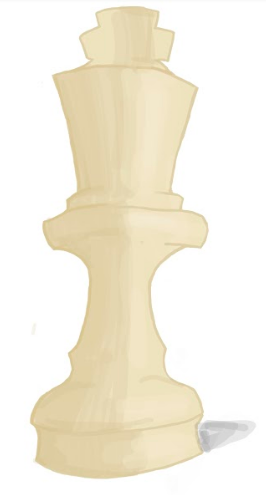Many of us spent our time in quarantine exploring different intellectual activities, whether it be chess, Go, crossword puzzles, or sudoku. The COVID-19 pandemic might have brought life to a halt, but these games are thriving, most notably chess.
Chess has been exploding in popularity. One of the world’s oldest games, whose origin can be traced back almost 1500 years, is the pandemic’s new surprise. Demand for both online and over-the-board chess surged as everyone, shut-in and under siege from the coronavirus, discovered the ancient sport. Chess is no longer just a game for geniuses; it has rebranded itself as a lively pastime for the masses.
The premiere of the Netflix Series The Queen’s Gambit in October has inspired millions more to take up chess. The No. 1 Netflix show details the fictional story of Beth Harmon, an orphan girl in the 1960s who succeeds in the male-dominated game of chess while grappling with addiction. The current interest in chess stems from a combination of the pandemic, The Queen’s Gambit, and the massive increase in coverage from popular content creators and streamers.
With my newfound free time during winter break, I found myself consumed by chess. I, like many of my friends, registered a chess.com account, with the intention of it just being a fun little distraction. Soon, however, I developed a passion for the game. I was regularly playing games against players from all over the world, watching live coverage of top-level tournaments, and scratching my head as I attempted to figure out the solution to the daily puzzles. Unlike video games, I actually felt productive and accomplished while doing so. Even if I lost, I was always eager to study the computer’s chess analysis to find out why I didn’t win. Instead of succumbing to my urge to punch a hole through the wall, I learned to use a loss as motivation to improve.

Whenever I’m contemplating a trade or piece sacrifice, I take into account how active the piece is, whether or not I have a material advantage, and if I’m getting some kind of positional compensation in return. Life is like a chess game, and we have to know when to sacrifice and when to make a trade in order to survive. In this past year, for example, we have had to sacrifice our social lives for the well-being of ourselves and others around us.
Much of the appeal of intellectual activities has to do with how they can help us stay focused and grounded. They are relatively easy to pick up, yet surprisingly difficult to master. They generally have simplistic rules, yet an infinite number of complexities. But most importantly, they stimulate our brain and are able to provide us with much-needed social connections amidst a time of crisis. Chess has allowed me to remain in contact with my friends from other dorms and family members in China. It’s more than just a pastime or a game for me; it’s a means to communicate with those closest to me. And not only that, but it has changed how I make decisions, making me more aware of the consequences of my actions, and how I approach my activities, teaching me to look ahead and to think in a systematic, step-by-step way.
I urge everyone at Deerfield to explore these activities with their friends, classmates, and family members. Perhaps play a few quick games of Bullet Chess after study hall or complete a New York Times Crossword before class. Let’s all have some fun!

